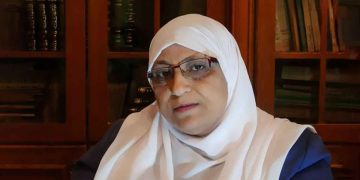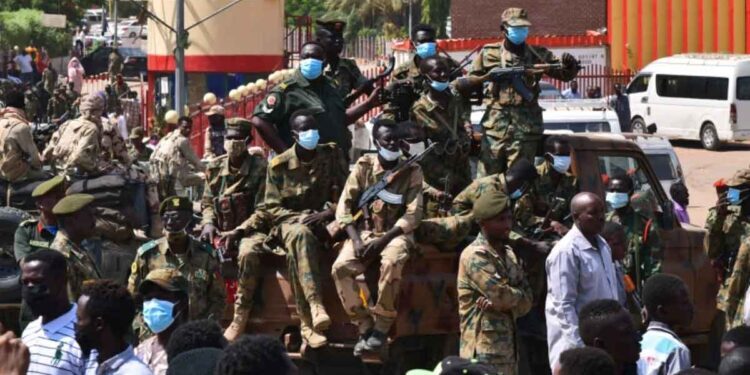The death toll of protestors against the decisions considered as a military coup by the army chief, Abdel-Fattah Al-Burhan, has reached 11 victims since Monday. The first victim died of his wounds on Sunday.
Marwan Jamal Sabah died of a bullet wound to the head by the army in the city of Bahri on October 28, after a day of suffering in the intensive care unit.
On Saturday evening 3 protesters were shot dead by the military council in Omdurman, west of the capital, Khartoum, while about 110 others were wounded in several cities, some of whom were injured with live bullets during the demonstrations known as the “October 30 Million”.
The Secretary-General of the United Nations, Antonio Guterres had called on the military in Sudan to exercise restraint to avoid casualties.
In a press conference on Friday, he said “I urge the military to show restraint and not to cause more casualties. People must be allowed to demonstrate peacefully and this is necessary.”
Last Monday Al-Burhan declared a state of emergency in the country, dissolved the Sovereignty Council and the Transitional Ministers, dismissed the governors, and suspended some provisions of the constitutional document for managing the transitional period.
Hours before these decisions, the authorities carried out a series of arrests, including the head of the transitional government, Abdullah Hamdok, ministers, officials, and party leaders.
Since August 21, 2019, Sudan lived through a 53-month transitional period that would have ended with holding elections in early 2024, during which power would be shared by the army, civil forces, and armed movements which signed a peace agreement with the government in 2020.
This transitional period began following the army’s ousting of president Omar Al-Bashar on April 11, 2019, following popular protests against the rule of Al-Bashir, who came to power through a military coup in 1989.
Since then, all opinion-makers, journalists, human rights defenders, and others who criticize the Sudanese authorities have been at risk of arrest, threats
The military coup in Sudan was an inevitable result of the approach adopted by the ruling parties in managing the affairs of the country, where the focus was on the private gains of each party while neglecting the citizens’ daily needs for a decent living, and achieving the goals of the revolution.
The Sovereign Council and the government failed to establish the rules of democracy and principles of human rights, and each group was busy displaying its strength, power, and enacting laws aimed at taking revenge on figures of the former regime and their supporters.
The main way out of this crisis would be through a comprehensive national dialogue under the auspices of the United Nations that includes all civil and political forces, without excluding anyone, provided that elections are held within the shortest time so that the people can choose their representatives and form a government that expresses the hopes and aspirations of the people.






























